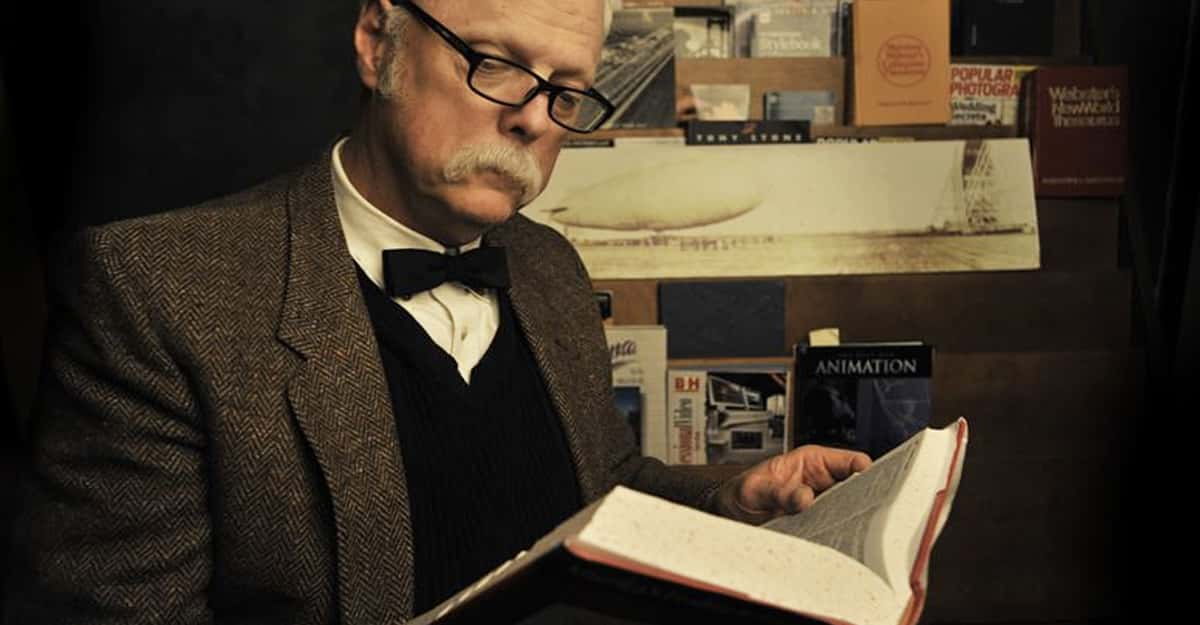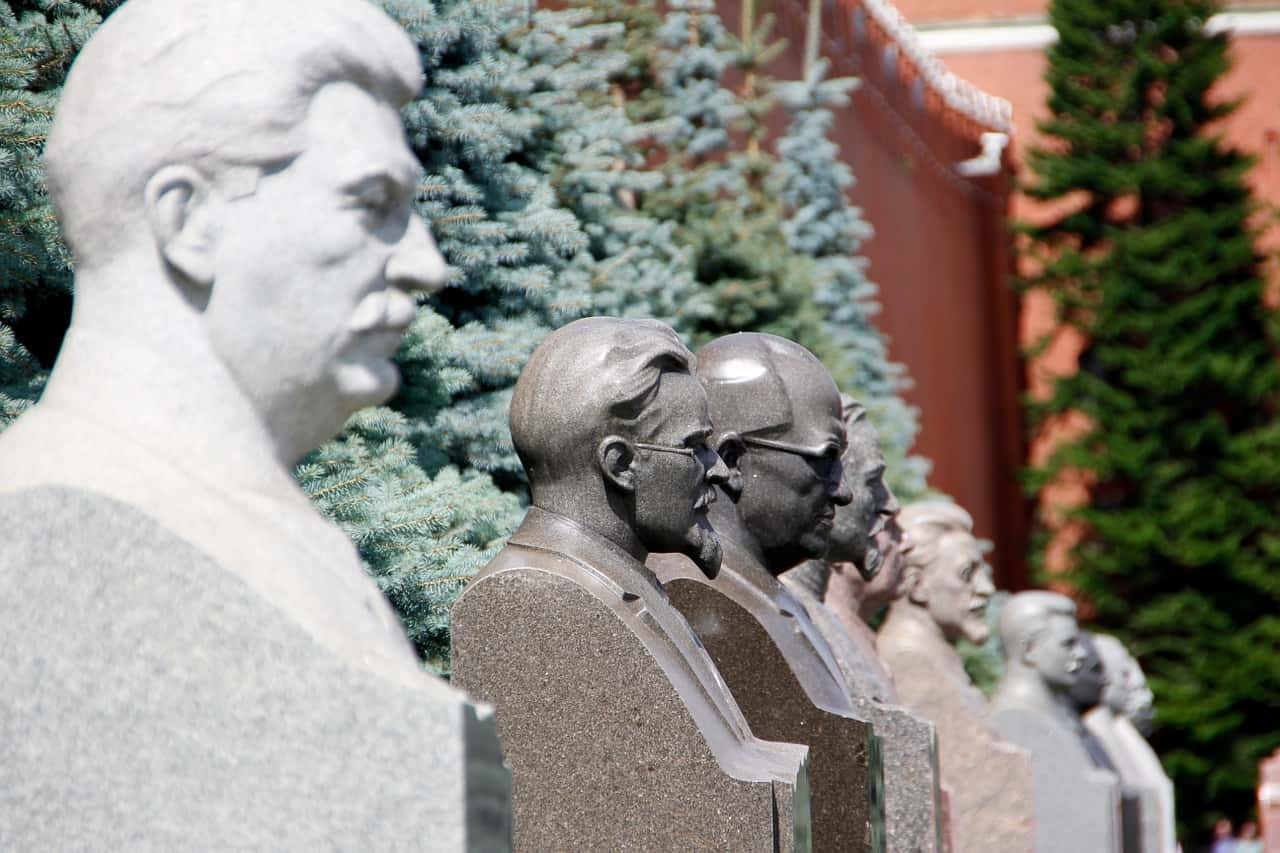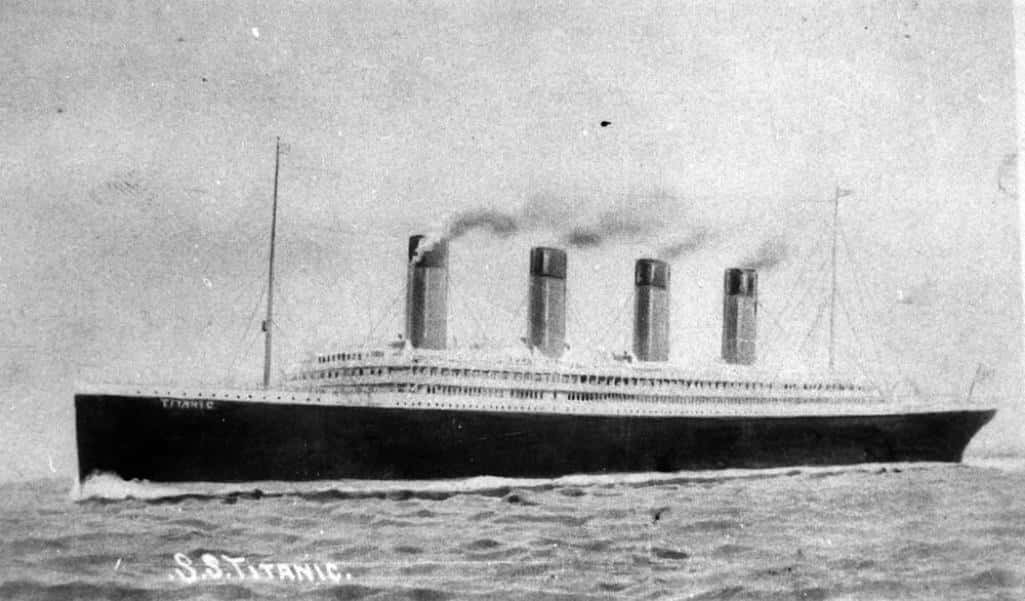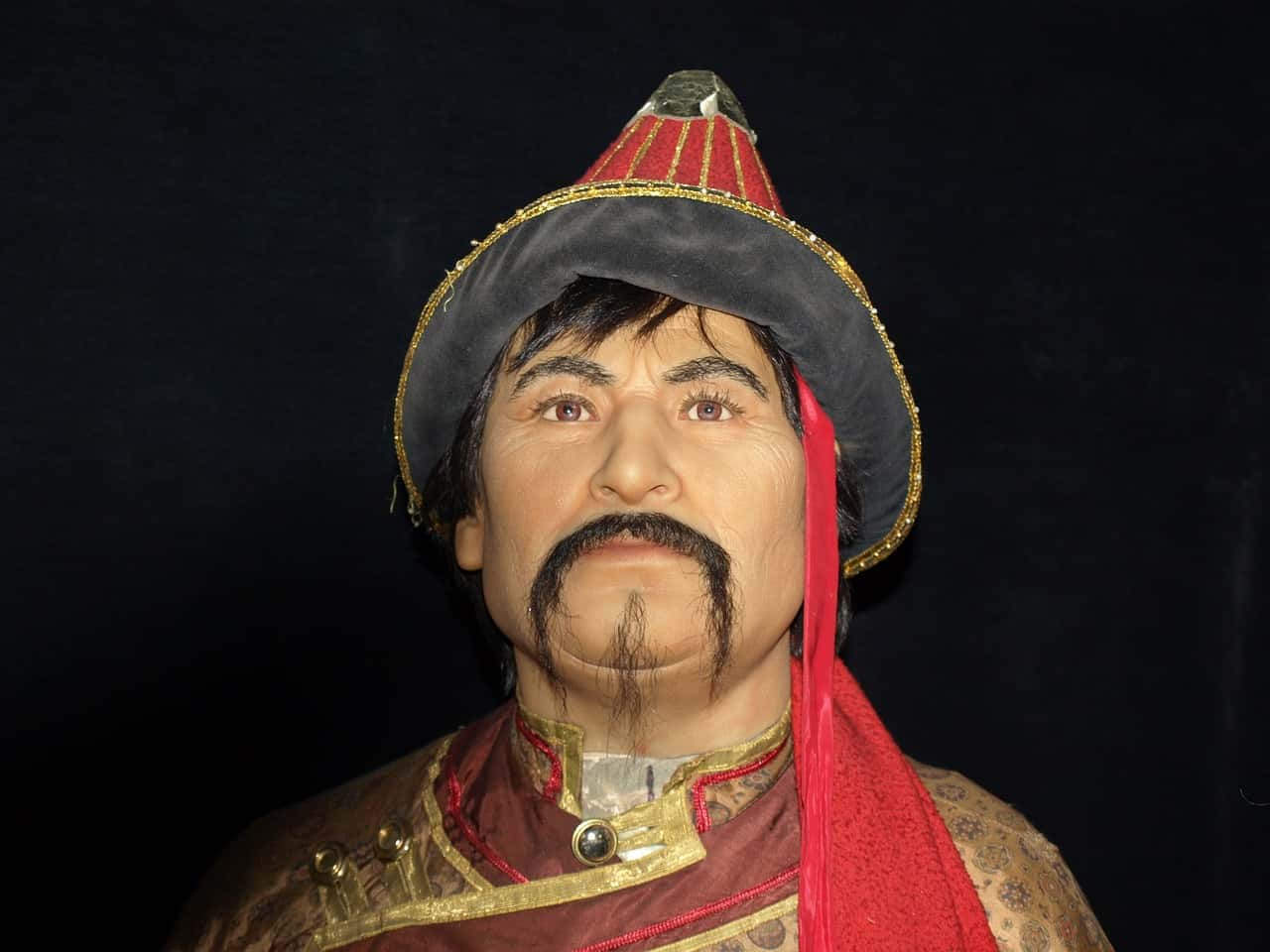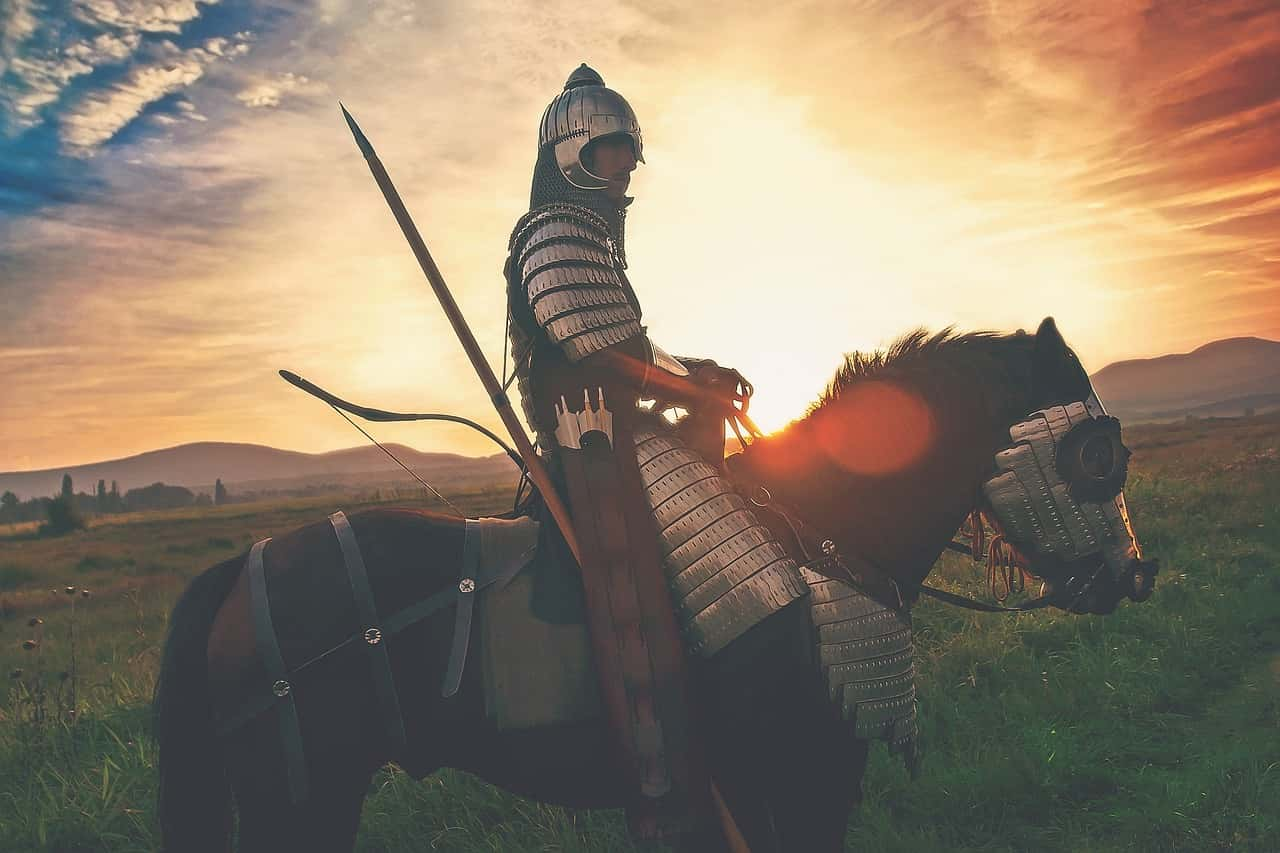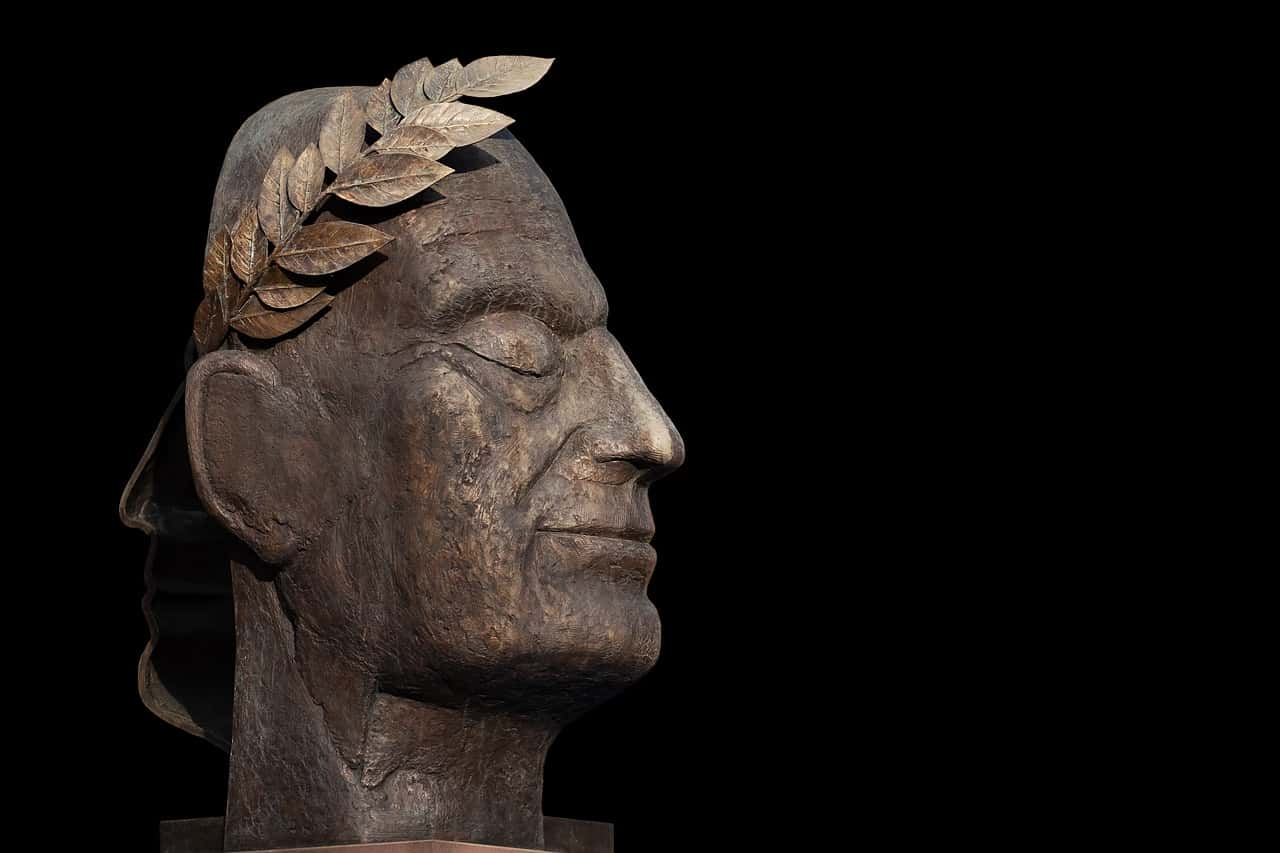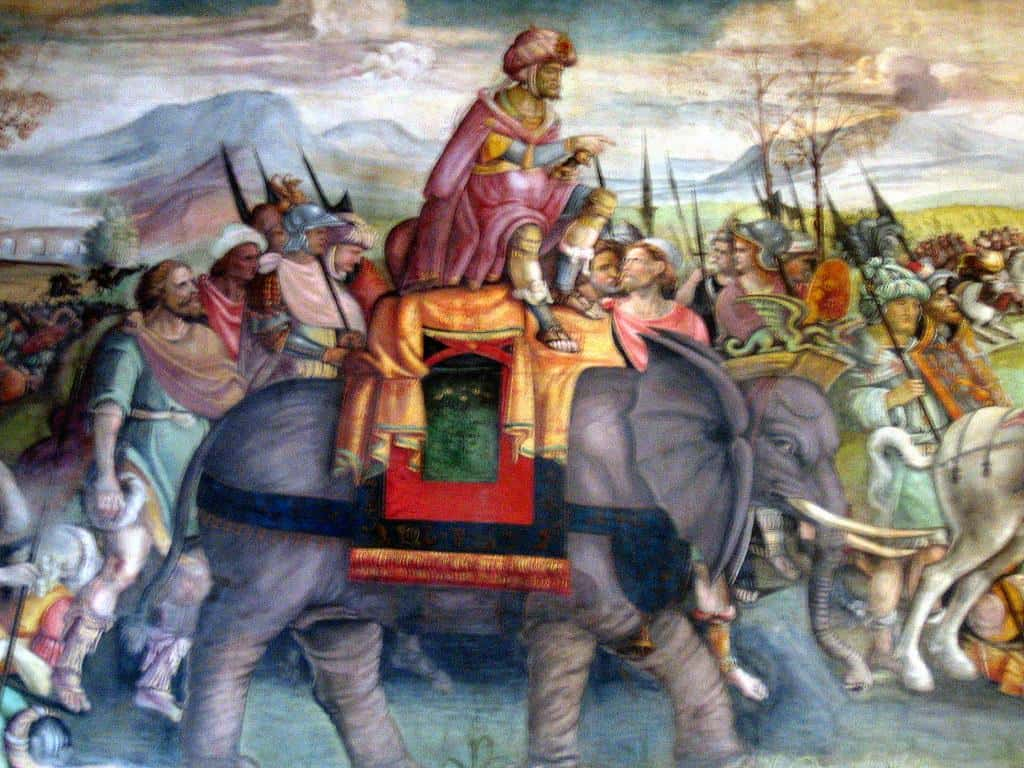Have you ever wondered how different the world would be if certain people had made different decisions? These historians certainly have. They've examined the lives of historical leaders and their choices, and they've shared the worst of the worst with us. From well-known people like Genghis Khan, Stalin, and Hitler to random, relatively unknown individuals, everyone on this list has made the world a different place by the choices they've made. Let this list of stories be a reminder to you: Everyone can affect the world in big, small, and bad ways, so think before you act. If that's a bit too heavy, just remember to always follow safety protocol and, if given the chance, accept Hitler into art school.
Don't forget to check the comment section below the article for more interesting stories!
#1 The Same Mistake Over and Over
In 1998, Yahoo refused to buy google for 1 million. In 2002, they realized the mistake they had made and asked to buy google for 3 billion. Google wouldn’t go below 5 billion, so they refused again. In 2008, they wouldn’t sell Yahoo for 40 billion. In 2016, they were sold for 4.6 billion. I think yahoo could have used some better financial advisors.
#2 Well, That Was a Big Mistake
The guy that sold the bottling rights for Coca Cola—for $1. Asa Candler sold the rights to three entrepreneurs, Benjamin Thomas, Joseph Whitehead and John Lupton, who developed what became the Coca-Cola worldwide bottling system.
#3 Hurt Them The Most
The decision by the Scottish to invade England during the Black Plague must be up there.
#4 Lots Of Bad
Mao Zedong. He basically told his nation to take pots and pans to get rid of all the sparrows. However, the ecosystem was disturbed and the locust population skyrocketed. He also thought that planting seeds one meter in the ground would result in greater roots and better harvest. He thought that putting tons of seeds in one compact area would cause a better harvest. Obviously, all of the seeds died. Around 30 million or so died from famine under his rule.
#5 Don't Mess With Agriculture
Stalin was also nuts. Well, it was really his chief “peasant scientist”, Trofim Lysenko. Lysenko believed in ideology over genetics when it came to agriculture, so he developed the idea of “close planting.” See, if one seed could become a fine crop plant, why couldn't 10 seeds in the same hole produce an even finer plant? This, obviously, did not work.
#6 Don't Wipe Out the Elephants!
Allan Savory, the ecologist, wiped out 40,000 elephants because it was believed that grazing was causing the desertification of Africa, only to find out later that elephants were essential to prevent desertification. Big mistake.
#7 Big Mistake
The Eastman Kodak Company (or better known as just Kodak) deciding not to go forward with their own newly invented digital cameras and, instead, sticking with film because it made them so much money at the time.
#8 Could Have Been Apple
Maybe the worst business decision ever made was by Xerox with their Alto computer. Xerox invented the graphical interface modern computers use: desktop, folders, copy/paste, etc. They basically invented the modern computer in the '70s. But the problem was, the people in charge at the time were businessmen without any technical knowledge, so they didn't realize what they had.
They did nothing with the interface and gave it away to universities and showed other companies. The famous story is that Steve Jobs saw this and within five minutes realized this was the way computers would work in the future. He copied it, because Xerox didn't patent their invention, and the rest is history. Xerox could have been Apple or Microsoft. Or both.
They could have had a monopoly on the entire PC industry. Almost every company uses Windows in their offices. I think 80 or 90 percent of consumers use Windows. That could have been Xerox. They had the tech maybe 10 years before anyone else. They could have been the most valuable company of all time but they just gave it away.

#9 Grave Robbing Or Missed Opportunity?
Robert Ballard, one of the guys who discovered Titanic, says that his biggest regret is that he and Jean-Lous Michel didn’t bring a piece of the Titanic up with him when he first discovered it in 1985. At the time, they didn’t want to disturb the wreck, but if they had done so, then they would have been able to claim legal ownership of the wreck under international maritime law, and therefore more control over it.
Because they chose not to do that, anyone is able to take artifacts and pieces of the wreck, and this makes preservation impossible. There is a school of thought which Robert Ballard subscribes to, which is that the wreck is the final resting place of the more than 1,500 souls who perished that cold night on April 14, 1912, and must, therefore, be treated with the same respect and dignity as a grave.
Private companies who take artifacts and pieces of the wreck for the purpose of selling them are effectively grave-robbing. And while the wreck is gradually deteriorating into nothing, the argument is that this doesn’t matter—it’s just nature taking its course. Of course, there is the argument that removing certain artifacts from the wreck and putting them in a museum is conducive to both the public good and the memory of the victims.
I don’t have a problem with that, personally, and I can’t speak for Robert Ballard. But I do have a problem with commercial scavengers taking pieces up from the wreck to sell them. My understanding is that if Ballard and his team were the registered owners of the wreck, he would have a claim to anything sold for profit, which would potentially deter people from taking things in the first place.
#10 Why Would You Let This Guy Make This Choice?
The Radcliff Line. The process to divide India and Pakistan boundary in 1947 was done hastily and without major considerations to local populace religion. Radcliff was not a geographer. In fact, he was an English lawyer, and he majorly messed up the process. Millions died because of his decisions.
#11 So Many Choices
The decision of Inalchuq, the governor of the Khwarazmian city of Otrar, to attack Genghis Khan’s trade caravan was pretty bad. Khan was famous as a ruthless warlord, not the sort of guy you want to cross. So, Khan sent three ambassadors to negotiate a settlement. Muhammad II, the Shah of of Khwarzem, made the very bad decision to eliminate one of these ambasssdors and send the other two back without their beards as a sign of humiliation. Genghis Kahn was so enraged that he assembled an army and destroyed the Khwarazmian Empire. He wiped out every town they had. He even re-routed a river to wipe out the village where the Shah was born, wiping it off the map. By 1120, there wasn’t much left.
#12 Mongols Are Still The Worst
The Mongols harmed the Middle East so much that it still hasn't recovered. They filled in irrigation ditches that had existed for thousands of years and set back their agricultural development back a very, very long time. Many of those areas never recovered to pre-Mongol levels. They also destroyed so many villages and books that the rivers were said to run red and black.
#13 C'mon, Grandpa
My family owned a little town west of Kent in the United Kingdom. My great-great-great-grandfather went out to the bar one night and gambled it all away.
#14 He Couldn't Have Known
My great-great-grandfather, a carpenter, did some work for a poor painter in the neighbourhood. The painter had no money, so he offered either a bottle of wine or a painting. My great-great-grandfather chose the wine. Big mistake. The painter was Edvard Munch, the Norwegian painter whose best-known work, The Scream, has become one of the most iconic images of world art. The painting Munch would have given my great-great-grandfather would have been worth millions upon millions today.
#15 Clearly He Wasn't Sane
Hong Xiuquan declared the Taiping rebellion after he had a nervous breakdown from failing the imperial examinations. He proclaimed that he was the brother of Jesus Christ. About 30 million people perished.
#16 Spoiler Alert: Lots Of Trash
“Hey, let’s create a coffee machine that uses a single-use plastic cup for every cup of coffee or tea. How bad can the trash from that really be?” I actually read that the creator of the K-Cup, John Sylvan, regrets inventing the pod system.
#17 Double Traitor
Alcibiades was considered a traitor in Athens for leading his men into a losing war; a traitor in Sparta because he convinced the queen to cheat on the king with him; and a traitor in Persia after including them in a war.
#18 Good Job, Guys
How about the guy who bought 20,000 Albanian slaves, brought them to Cairo, trained them to be the greatest warriors of their time, and then got overthrown by said slave warriors because they were so well-trained? Karma.
#19 Go With The Guy With A Plan
Kaiser Wilhelm II firing Otto von Bismarck. Many historians believe that Wilhelm’s more aggressive foreign policy after he removed Bismarck was a major cause of World War I.
#20 Oh, The Irony
Brutus decided to join Cassius in murdering the dictatorial tyrant, Caesar. The reason? They suspected his intent to become a king. This started a chain of events leading to his adopted son, also called Caesar, becoming a military dictator without equal, which meant he had all of the powers of a king. When this Caesar Augustus died, his name and title were passed on for the next four hundred years, almost like you would a crown.
Monarchies then returned all over Europe, in the style of Augustus Caesar. And so, the decision of Brutus to join the conspiracy in effect changed all of Western civilization for the next 1,900 years to adopt the very political style he wanted to avoid. It would not be until the 1770s when America and later France would begin revolting and experimenting with Democracies and Republics.
#21 Did He Get What He Deserved?
Thomas Midgley Jr. can lay claim to two. First, he discovered and helped popularise the use of lead in gasoline, causing unimaginable harm to the atmosphere and our brains. He contracted lead poisoning when working on the project but apparently neglected to draw any conclusions from this. Second, he led the team that discovered freon, the first chlorofluorocarbon, and helped popularize the use of CFCs in refrigeration and industrial applications, causing further harm to the atmosphere. It’s suggested that he had a greater impact on the atmosphere than any other single person in history.
#22 Worse Than Mao?
Zimbabwe's ruling party essentially took farms and gave them to people who didn't know the first thing about commercial agriculture. They gave the farms to top members of the ruling party or those who were related to them.
#23 Sounds Like A Bad Call
"Let's invade Russia." Twice.
#24 Believe In Yourself, Nokia
Nokia developed the first smartphone way before Apple, but did not believe them to be the future. They just continued to develop their dated, brick-like phones.
#25 Is It His Fault?
The guy who rejected Hitler's art academy application.
#26 Should Have Stayed Out Of That Conversation
How about Helene Hanfstaengel, who saved Hitler's life in 1923 after his first coup attempt in Bavaria had failed? Her son, who witnessed the scene as a child and was Hitler's godson, later joined the U.S. Army to fight against Nazi Germany. Her husband, who had let Hitler stay in his house, had befriended Franklin D. Roosevelt in Harvard over a decade earlier and would later become an adviser of the president.
#27 Follow Your Heart
Me, when, against my better judgement, I opened a kennel to let two angry pit bulls out. Their owner said, “Just let them out. They won’t hurt you.” The next thing I remember is being flown in a medical helicopter to the hospital, where I spent over two months having 18 surgeries to repair the damage those dogs did. Yup. The worst single decision in history, for sure.
#28 So Much Support For This One
How about the greatest single decision that could have ended up as the worst single decision in history ever made by a person? Vasily Arkhipov. The man who was solely responsible for preventing nuclear war in 1962. The three officers on board the diesel-powered and nuclear-armed B-59 sub had to agree unanimously to launch the nuclear torpedo. Bad conditions on the ship began to take a toll upon the crew members; diesel subs can get incredibly hot over extended periods of time. The batteries in the sub failed and the air conditioning stopped, and the lack of fresh air from increased carbon dioxide levels left crew members delirious.
Eventually, two officers, Captain Savitsky, and the political officer Ivan Semonovich Maslennikov got sick of waiting in the submarine. They thought WWIII had already begun, and they decided to go through with the launch. But Arkhipov was second in command and his position as flotilla commander meant that they needed his approval to launch the torpedo. Vasily disagreed and all three officers got into a physical confrontation, fighting over command of the torpedo. Eventually, they agreed with Vasily and had brought the sub to surface.
#29 No Name
The caste-based reservation system of India.
#30 I Love You, Attila
Justa Grata Honoria (the sister of the emperor of the Western Roman Empire) writing love letters to Attila the Hun. Faced with an unwanted marriage, Honoria sought the aid of Attila the Hun. She sent him a plea for help in the spring of 450. For years, Attila had been planning to invade Rome and Honoria's letter gave him the excuse to make his move. This led Attila to attack the empire, which ultimately helped in its downfall.
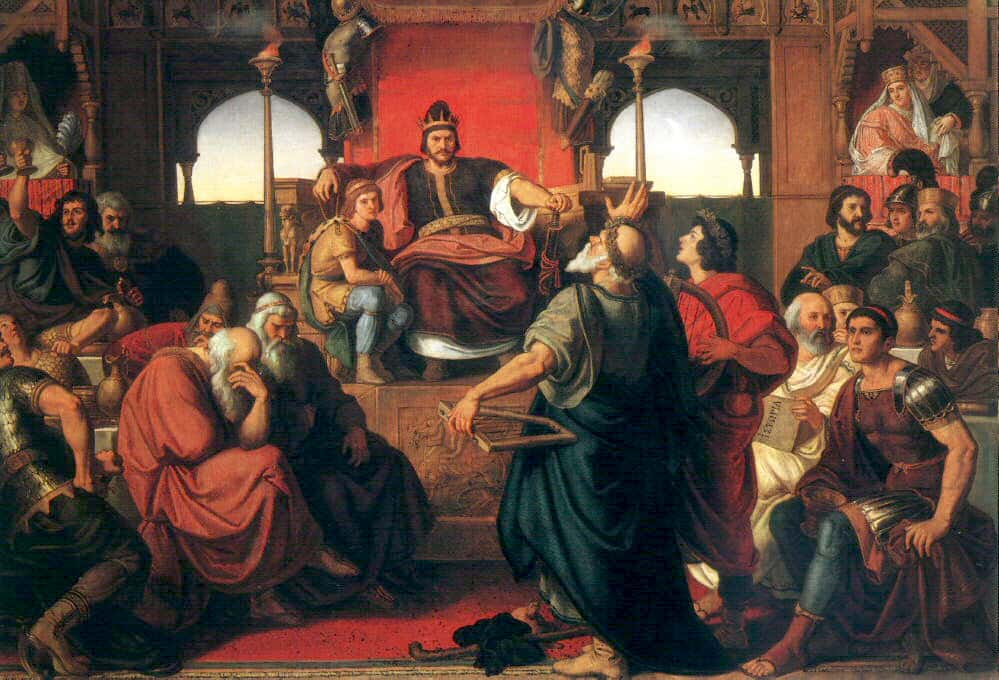
#31 This Time It's Hitler's Decision
When Hitler decided to betray the Soviet Union. That was pretty disastrous for him but it was, thankfully, beneficial to the rest of the world. He also ordered the Luftwaffe to destroy civilian targets in England. This caused the Allies to strike back at Germany's own civilian and industrial heartland even harder, so then Hitler ordered the Luftwaffe back to defend the homeland, and that put a serious cap on his capabilities.
Up until then, the Luftwaffe was key in Germany's blitzkrieg (lightning war) strategy. Without it, they couldn't grab new territory as fast as they were able in 1940. WWII is actually full of disastrous decisions Hitler personally made against the own good advice of his generals and advisors. I guess being an egomaniac will do that for you.

#32 It's Still Going
We're still working on the decision, but whether or not we should let the planet rot. No matter the outcome, our actions that led to climate change will undoubtedly be one of the worst decisions ever made.
#33 Pretty Bad
Supreme Court Justice Robert B. Taney wrote the Dred Scott v. Sandford decision. It was definitely the worst decision made by the Supreme Court saying, “[Blacks] had no rights which the white man was bound to respect.”
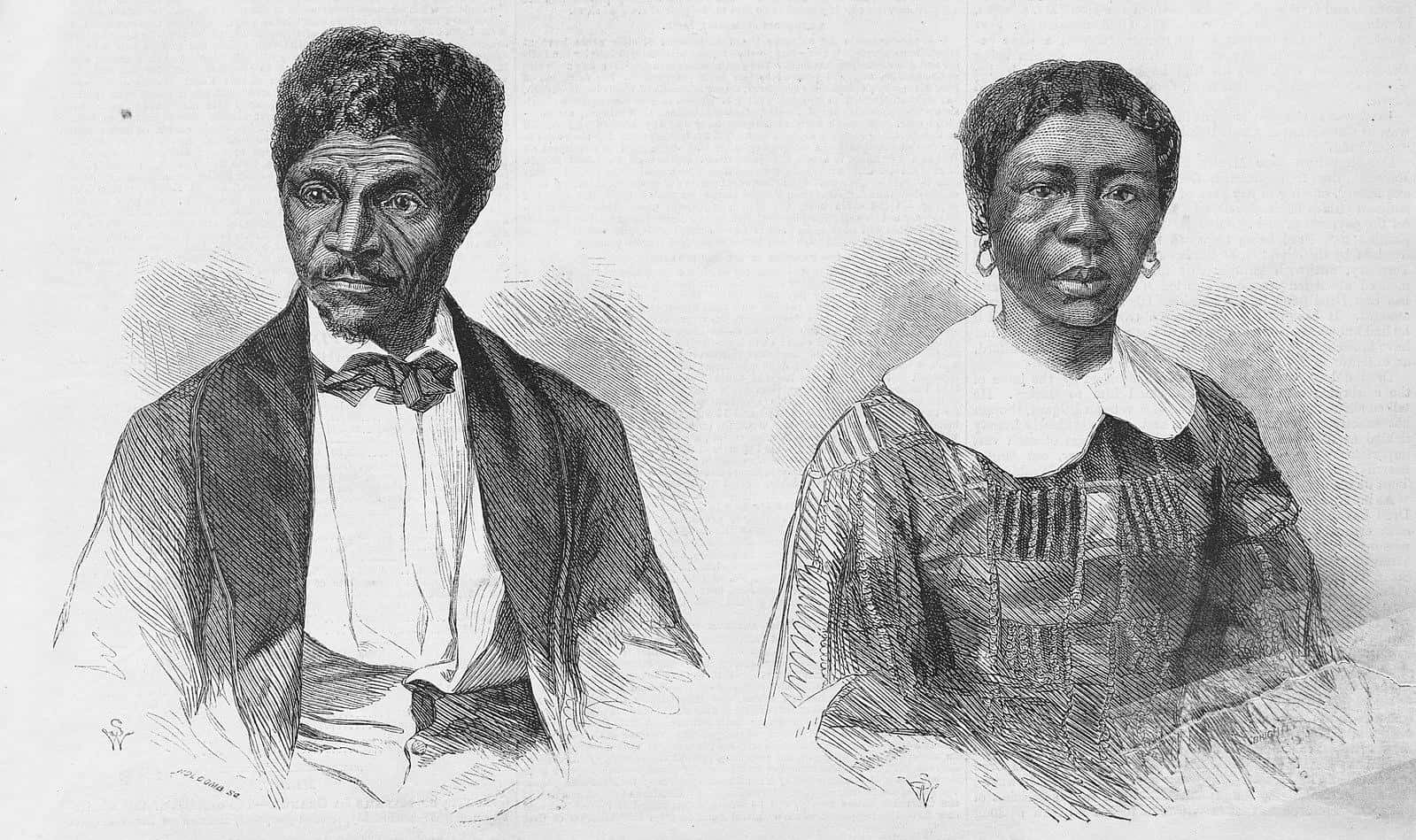
#34 Was It That Bad?
The guy who made Google Plus! The network was launched in June 2011 in an attempt to challenge other social networks.
#35 Bet He's Never Bored
There was a guy who spent his entire life savings on fidget spinners. He had planned to sell them for a large profit but soon found out that the market was already saturated. He was begging people to buy the fidget spinners at cost or even at below cost—anything to recuperate some of his money.
#36 Military vs. Positive Impact
Jawaharlal Nehru. The first prime minister of India after Independence. India and China were both struggling countries trying hard to make ends meet. Instead of making China a friend, Nehru pushed for a strong policy against them. He then brilliantly decided to start a war that the military was in no position to fight. If not for him, the world would be a different place today. Instead of having huge militaries, India, China and Pakistan could have developed their respective countries and made a positive impact on the world.
#37 Where'd Blockbuster Go?
The time Blockbuster decides to pass on buying Netflix for $50 million in 2005.
#38 Decisions, Decisions
Here are a few candidates: Hitler and Napoleon, for attacking Russia; Dyatlov, for various bad decisions at Chernobyl; whoever ordered Pearl Harbor; licencing thalidomide for use against morning sickness (this caused miscarriages in about 40 percent of pregnancies and had horrendous effects on many of the rest); using hydrogen to fly the Hindenburg.
#39 A Bad Decision
After successfully invading Iraq and toppling Saddam Hussein, the U.S. decided that all members of the ruling Baath party should be banned from government and military positions in the new government. The result was a crop of knowledgeable bureaucrats and military leaders who were available to join under Zarqawi, a Jordanian jihadist who ran a paramilitary training camp in Afghanistan. This formed a little group that would go on to become ISIS.
#40 Stick To Protocol
Anatoly Dyatlov going ahead with the safety test in Chernobyl even as multiple aspects of the scenario went wrong. He deviated from protocol rather than canceling the test. When you find yourself disabling automatic safety features so that you can pull even more control rods out of the reactor, that's probably a sign you should step back and really think about what you're doing.
#41 Too Bad About Hitler
Henry Tandey who supposedly spared Adolf Hitler's life during the war. The story is set on September 28, 1918, while Tandey was serving with the fifth Duke of Wellington's Regiment. According to the story, a weary German soldier wandered into Tandey's line of fire. The enemy soldier was wounded and did not even attempt to raise his own rifle. Tandey chose not to shoot. The German soldier saw him lower his rifle and nodded his thanks before wandering off. That soldier is purported to have been Adolf Hitler.
#42 Too Bad, Taft
William Howard Taft running for U.S. president. Prior to WWI, the U.S. elections took place with Woodrow Wilson winning with a 36 percent (give or take) majority. How could this happen? Taft. The election was split three ways, Wilson for the democrats, and Taft and Teddy Roosevelt for the Republicans. They split the vote and Wilson won.
Had Taft not split the vote, Roosevelt would have won and served a third presidential term. As president, Roosevelt would have shortened the war by up to a year. And here's where this starts impacting everything else. The main impact of a shortened war would have been on Russia. While it wouldn’t have saved the Tsar, it would have brought down Lenin and prevented the rise of communism, as it would have denied Lenin the public backing he needed, given that the current government didn’t look quite so incompetent.
With no Lenin, there would be no Stalin and no mass genocides. And speaking of genocides, the fear of communist take-over largely fuelled support for the Nazi party and without them, Hitler would have been a fringe extremist with very few people even noticing him. So, in conclusion, because Taft ran for president and split the vote, this denied Roosevelt a third term, which led to a prolonged WWI, the Russian Communist take over, WWII, the Cold War, etc.
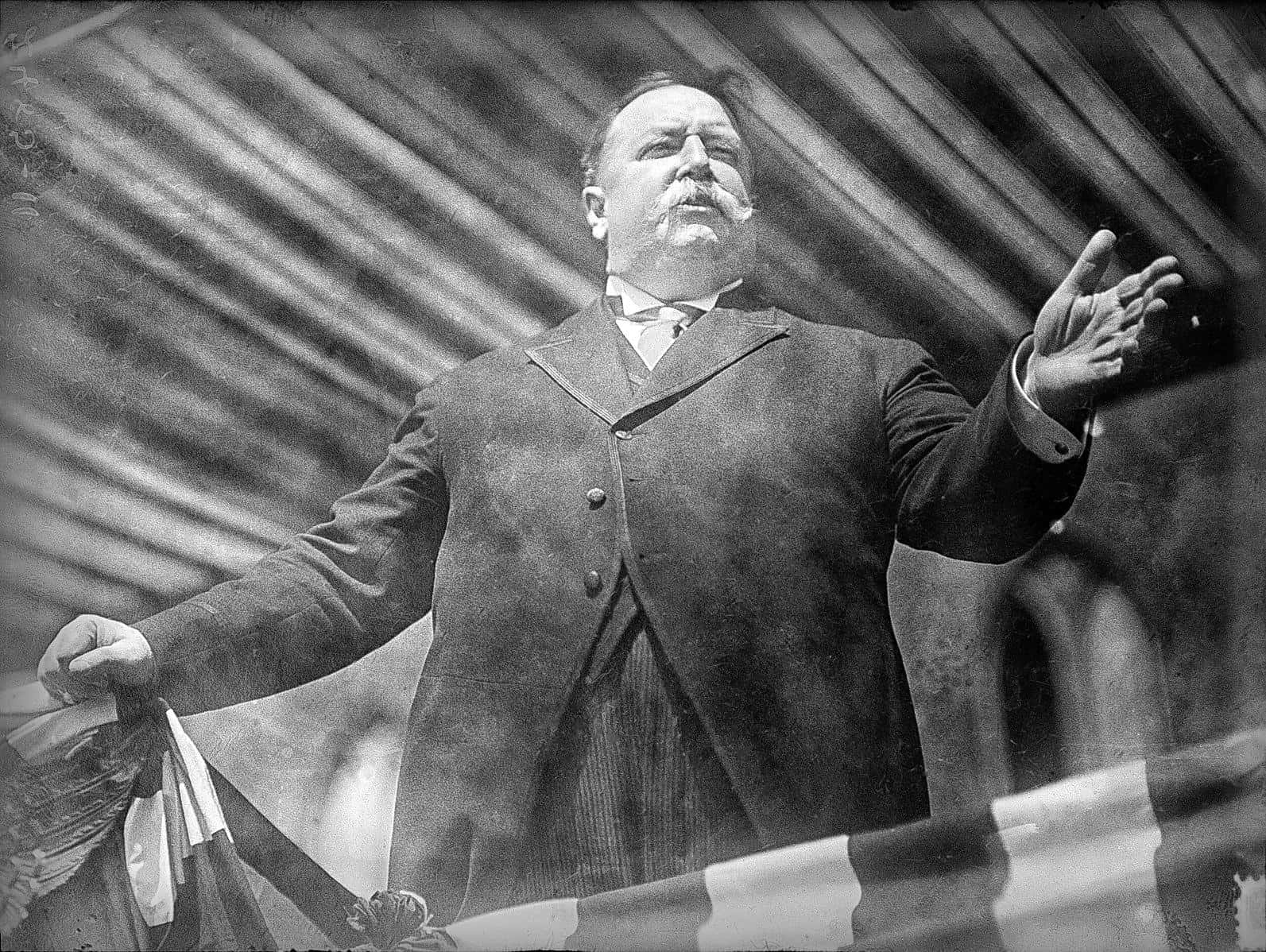
#43 Maybe Not The Worst, But Sad
Maybe Ronald Wayne. He was a co-founder of Apple along with Steve Jobs and Steve Wozniak in 1976. Just 12 days after forming the company, he sold his shares for $800. He owned 10% of the company, which would be worth about $80,000,000,000 (80 billion) today.
#44 The Start Of The Crusades
Emperor Alexius I of the Byzantines called on the west for help fighting the Seljuk Turks in 1095. The crusades then began and by 1204, the crusaders ransacked Constantinople, crippling the once-great empire to a mere shadow of itself until 1453, when the Ottomans conquered them.
#45 World Domination
Hannibal was very close to defeating Rome. However, the Romans pulled a sneak attack on Carthage. Hannibal faced an interesting decision because he did not grow up in Carthage and had no real ties to it. He just wanted to take territories on its behalf. However, Carthage leaders asked him to come back and defend the centre of the small empire. Eventually, he did go to Carthage, and thereby altered the course of history for one giant world-dominating empire.

